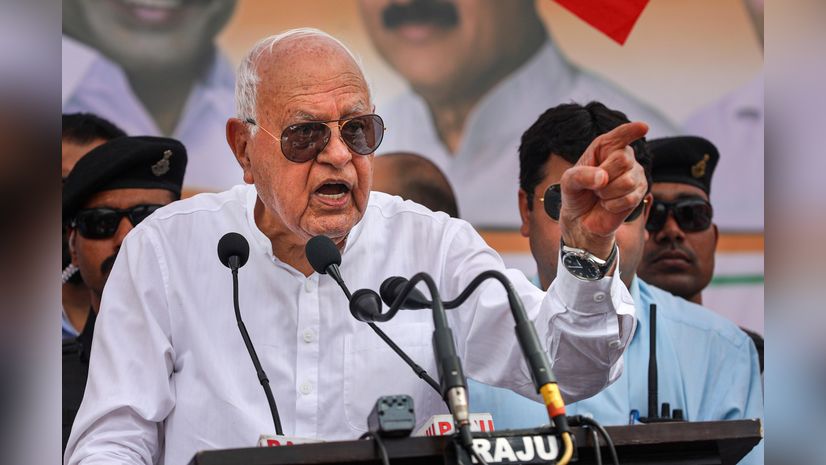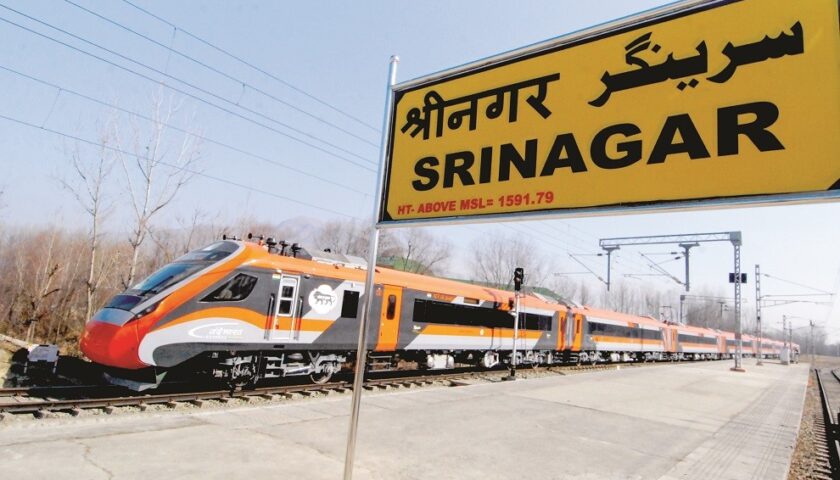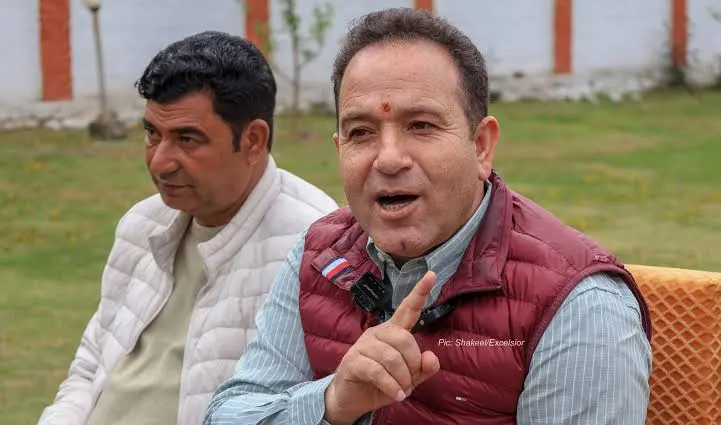Centre Must Listen to People’s Voice, Not Just Manage Optics, Says NC Leader
“We Are Hopeful”: Abdullah’s Call for Statehood
Former Chief Minister and National Conference (NC) president Farooq Abdullah has reiterated his belief that statehood will eventually be restored to Jammu & Kashmir, aligning with the aspirations of its people.
Speaking as the guest of honour at a golf tournament in Pahalgam, Abdullah told reporters:
“God willing, that will also happen one day. We are hopeful that Delhi will pay attention to it. The Prime Minister will see to it that the people of Jammu and Kashmir want statehood to be restored.”
His statement comes at a time when statehood is no longer just a constitutional demand but also an emotional touchstone for many Kashmiris who feel alienated by the loss of autonomy after August 2019.
Political Context: Tensions on the Rise
Abdullah’s remarks gain significance against a backdrop of heightened political tensions:
-
The detention of AAP MLA Mehraj Malik under the Public Safety Act (PSA), the first such case against a sitting legislator.
-
The Hazratbal emblem controversy, where the installation of a government plaque at a revered shrine sparked public outrage over perceived interference in religious affairs.
-
A broader sense of erosion of civil liberties, with preventive detentions, protest restrictions, and internet shutdowns continuing to define political life in J&K.
Abdullah acknowledged these episodes but contextualized them within the region’s long and turbulent history:
“This is not something new. However, we have to come out of that… nothing is static, things move.”
Tourism, Security, and the April Attack
The NC leader also reflected on the April 22 terror attack in Pahalgam’s Baisaran meadows, which killed 26 people, mostly tourists. Calling it a severe blow to Kashmir’s tourism-driven economy, Abdullah stressed the urgency of rebuilding confidence:
-
The Pahalgam golf tournament, where he was speaking, was itself framed as a confidence-building measure to signal that Kashmir remains safe and welcoming.
-
“Tourism is essential for sustaining the economy of Kashmir. Be it poor or rich, everyone benefits from tourism,” Abdullah noted.
By linking statehood restoration to the revival of tourism and economic stability, Abdullah positioned political dignity and livelihood security as two sides of the same coin.
Statehood as a Collective Aspiration
Abdullah’s remarks echo a growing chorus of voices calling on New Delhi to move beyond symbolic outreach and address core demands:
-
Restoration of full statehood with an empowered legislative assembly.
-
Respect for democratic processes, ensuring elected leaders—not bureaucrats—make key policy decisions.
-
Meaningful autonomy within the Indian Union, allowing Kashmiris to safeguard their identity, economy, and culture.
His optimism is both strategic and symbolic: while he acknowledges the Centre’s hold on the region, he insists that public aspirations cannot be ignored forever.
Why It Matters
-
For Politics: Statehood remains the central demand around which mainstream parties—NC, PDP, and even new entrants like AAP—are shaping their narratives.
-
For Democracy: Detentions under PSA and interference in religious and cultural spaces deepen alienation; statehood offers a pathway back to democratic accountability.
-
For Tourism: Political stability is essential to reassure visitors, rebuild Kashmir’s global image, and secure livelihoods tied to hospitality and trade.
The Road Ahead
Farooq Abdullah’s remarks in Pahalgam are more than ceremonial optimism. They reflect a broader shift in J&K’s discourse, where:
-
Statehood is seen as the first step toward restoring dignity.
-
Tourism revival is directly tied to political trust and security.
-
Delhi’s choices will determine whether Kashmir’s aspirations are met with reconciliation or resistance.
As Abdullah put it: “Nothing is static, things move.” For many in J&K, the question is whether those movements will finally bring them closer to a future where politics, economy, and culture align with their hopes for dignity and democracy.




